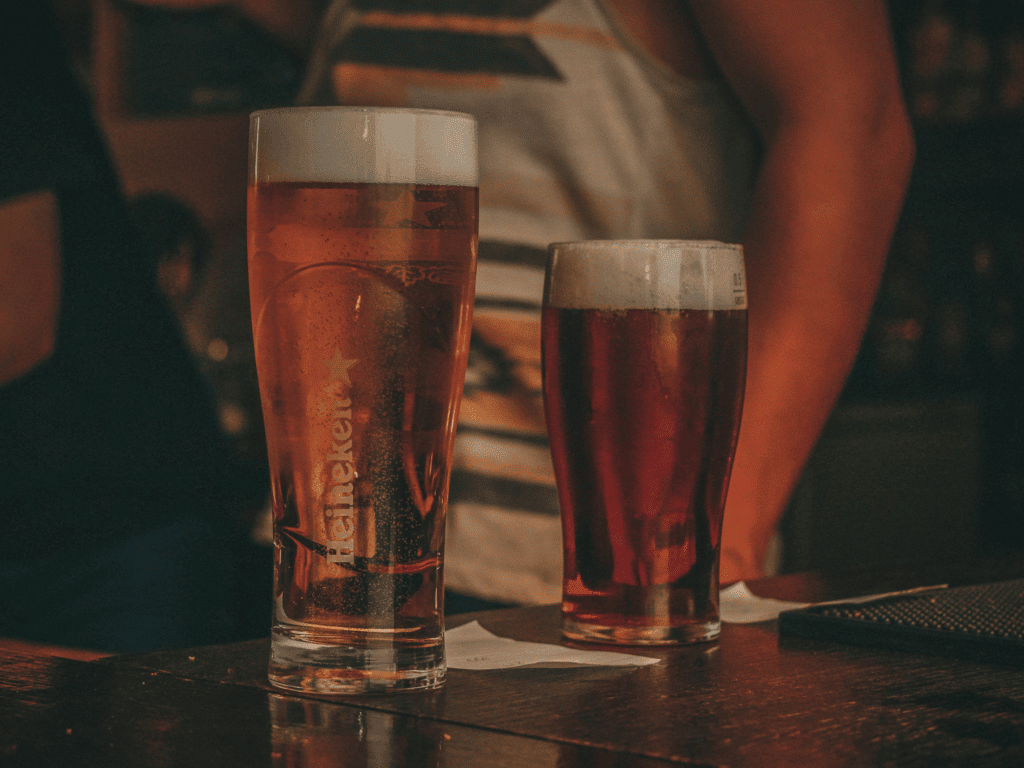You get up everyday and go to work, come home and either spend time with your family or take care of everyday chores. You consider yourself a productive person, because you are actively participating in the world and its surroundings with little to no roadblocks. Throughout the week, however, you are also drinking alcohol here and there. But is this “here and there” style of drinking more problematic than you think?
According to the Centers for Disease Control (CDC), women who consume more than seven alcoholic beverages a week are considered heavy drinkers. Men, on the other hand, can consume 14 drinks a week before being considered a heavy drinker. This is because women are generally smaller in physical stature than men, making it easier for their bodies to process alcohol, causing them to get drunk at a faster pace – and as a result, requiring less alcohol to achieve that effect.
The CDC also states that one in 10 adult deaths between ages 20 and 64 are caused by alcohol-related problems due to over-consumption. Ironically enough, 70% of those deaths are men as opposed to women.
It is important to remember that the standard drink is 12 ounces for a beer, 8 ounces for malt liquor, 5 ounces of wine, and 1.5 ounces of hard alcohol. This is often where people find themselves in trouble, as they order a 16-ounce beer or a gin and tonic with an extra shot of tonic but consider it one drink because it comes in one glass.
Many people who are considered heavy drinkers by the CDC are not aware that they are even drinking heavily, especially if they are spreading out their drinking throughout the week. However, there are a handful of symptoms that can alert you to a developing alcoholism problem, such as:
- Your work, home life, and relationships begin to suffer as a result of your fixation on drinking
- You drink and then participate in risky behaviors, such as driving a vehicle
- Your drinking has caused you legal problems, such as troubles with the law, credit companies, etc.
- Others make comments about the amount and/or frequency at which you are drinking and express concern
If these symptoms are acknowledged early enough, the chances of overcoming a growing alcoholism problem are much more positive than if you had let them develop into a dependency issue. Some of the most common symptoms of alcohol dependency include:
- You cannot stop drinking even though you want to
- You have to consume more beer or alcohol to achieve the drunk effect
- You continue to drink despite it causing you problems at work, with your loved ones, the legal system, or more
- You experience withdrawal symptoms such as “the shakes” when you do not have alcohol in your system
The best thing you can to do prevent a drinking problem from developing is to not consume alcohol whatsoever. By doing this, you avoid the many temptations that come with drinking (and drinking to excess). In addition, you are subsequently protecting your overall health and wellbeing – as well as the health and wellbeing of those around you.
Author
-

President, CEO & Founder at Northbound Treatment Network
Paul Alexander is the CEO, President & Founder of Northbound Treatment Network in Newport Beach, California. He believes wholeheartedly in transformational leadership, organizational health and effective, fully integrated substance use disorder and mental health treatment. With over 27 years of experience in behavioral healthcare, Paul has extensive knowledge of “in vivo” treatment modalities, clinical development, operations, strategy, marketing and financial planning. He has been widely recognized for his development of collegiate-based residential treatment programs for students in recovery and authored a research study at The University of California confirming this modality’s effectiveness.
Paul’s comprehensive professional experience, willingness to innovate, and emphasis on organizational health are vital factors in Northbound’s continued success. Paul received his Certified Addiction Treatment Specialist training at Saddleback College in Mission Viejo, CA, and was awarded Outstanding Alumni Service Award in 2002. Paul holds a Bachelor of Arts degree in Criminology, Law and Society, Summa Cum Laude, from University of California, Irvine, and a Juris Doctorate degree from Loyola Law School of Los Angeles. Paul currently serves on The National Association of Addiction Treatment Providers (NAATP) board. In addition, he serves on The Family Recovery Foundation board and The CarePossible board in Orange County; both organizations are committed to raising funds for family recovery and treatment for former military personnel. Paul is in recovery himself and lives in Orange County with his wife Silvana and his two young sons, Noah and Dean.










